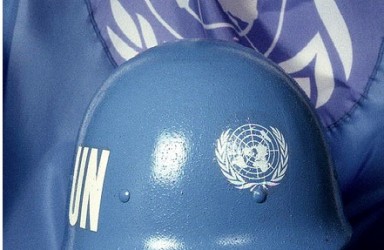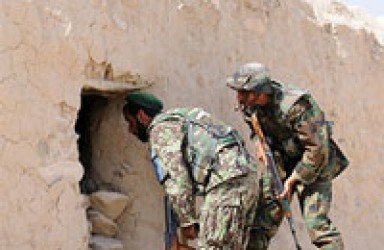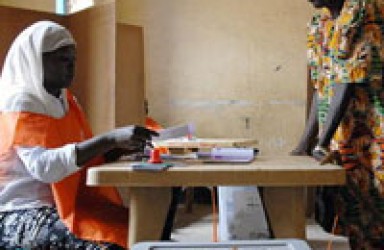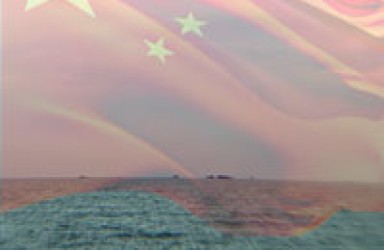Humanitarian Intervention : A return to core values
Western countries need to redefine their security agenda so as to return to basic core values which were seen in the 1990s. If we forsake such basic tenets, then we risk losing our sense of self; a fact which could have far worse ramifications than any specific terrorist threat or oil shortage.
What If Libya’s Qaddafi Hangs On?
Rather than unambiguously backing the cause of freedom in Libya, Western governments seem to be reconciling themselves to the possibility that the regime of Muammar Qaddafi might remain in power. If this is the case the world must prepare for the possible re-emergence of a global threat, Libya’s WMD program.
Mistakes and Lessons from the Afghan War
NATO’s lack of success to date in Afghanistan can be attributed to four factors: the reluctance to make difficult choices in state-building, the failure to confront Islam, the failure to confront Kabul, and the influence of China. While NATO may still eventually win, it will have been at tremendous cost and time, and Afghanistan will have posed a great opportunity cost for other NATO objectives.
Nuclear Meltdown
The accident in Japan may not prove to be as serious as that at Chernobyl in 1986, in that its direct radiological impacts will not be felt across such a wide area, but its political and economic effects could well be just as significant. The tragedy may shift priorities towards renewable energy. If so, the painful lesson that we can’t rely on nuclear technology may not have been in vain. After all, if technologically advanced Japan can’t handle nuclear power safely, who can?
Libya: The First Stand or the Last Post for the Responsibility to Protect?
When security forces, meant to protect people, are instead let loose in a killing spree, the state itself becomes the prime perpetrator of atrocities. With precisely such an unfolding scenario, Libya today is the place and time to redeem or renege on R2P’s solemn pledge.
South Sudan: Not in the clear yet
In January 2011 the South Sudanese voted overwhelmingly for independence from Sudan. Over 98% of registered voters chose separation over unity. Much of the Western media has portrayed this vote as an indicator of a successful end to decades of conflict in the South. When South Sudan celebrates its independence, expected to take place in July 2011, the mood will indeed be jovial. But South Sudan is setting up to be a failed state.
Britain in the World: Lessons from Afghanistan
In today’s world the prosperity, security, liberty and civil liberties of those at home cannot be separated from events beyond our borders. The era of a global recession and the global threat of terrorism prove that to any residual doubters. A belief that you have responsibility beyond your borders is not, as some would have it, ideological, but, a necessary response to the world in which we live.
The Rise of China
States still matter, power still triumphs, and competition still thrives. These will be the determining factors for the future of Sino-U.S. relations. Realists believe that if China can maintain its domestic economic growth and international financial strength, then a significant security competition with America is inevitable.
China’s Leisurely Aircraft-Carrier Ambitions
The enduring mismatch between the US and Chinese fleets is no guarantee of an equally lasting US naval supremacy in the Western Pacific and the Indian Ocean. Beijing is pursuing imaginative antiship missile technology. If rocketeers stationed ashore can keep the US Navy out of important waters, the Chinese Navy can accomplish its goals, even with an inferior fleet.
The Wolf, the Bear, and the Eagle: Peace in the Valley?
Turkish-Russian rapprochement should not be viewed by the West as a menace or even irritant, but rather the platform upon which regional knots of contention might find resolution. The regional political landscape of western Eurasia has shifted dramatically in the past decade; we in the West would do well to adjust our perceptions accordingly.











